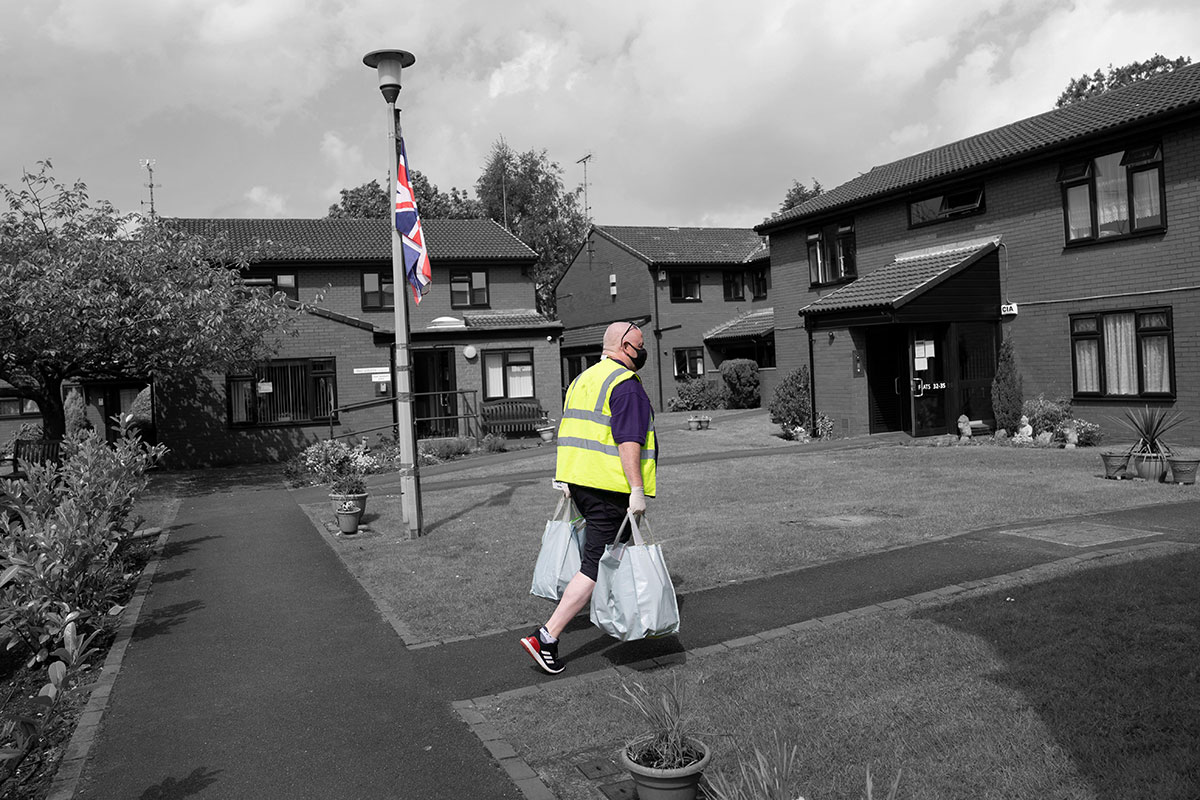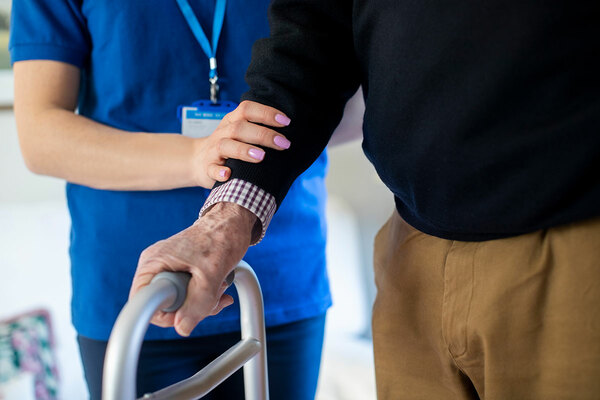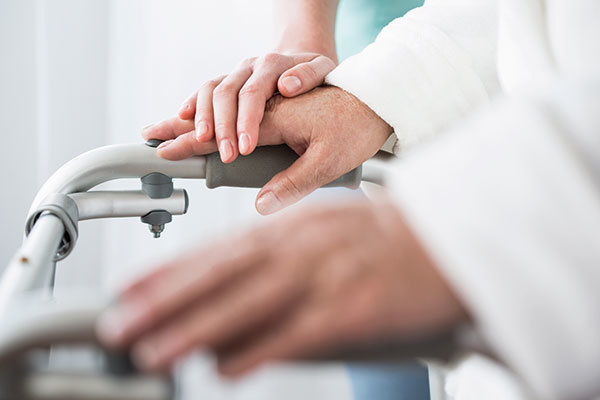You are viewing 1 of your 1 free articles
COVID-19: how supported living has coped
How have supported living organisations and tenants fared during COVID-19 – and what comes next, as infection rates rise again? Chaminda Jayanetti reports
Days before the government announced a national lockdown in March, Richard Keegan-Bull was at the south London office of the organisation that provides his support worker.
“One of the managers said, ‘This is the last day that the office like it is now will be open – from Monday we’ll all be working from home.’ And I just burst into tears. I think it just hit me there how serious and how big this was going to be.”
During the crisis, we have heard about the problems in care homes – understandably given the number of deaths. But for supported housing, there have been many similar challenges. Inside Housing spoke to some of these providers to find out what their experiences have been – and how they are coping now.
The supported living providers Inside Housing spoke to say COVID-19 outbreaks have been sporadic, with few if any deaths. Supported living schemes tend to have fewer residents than large care homes, helping limit the spread of the virus, and in some cases staff began living on site to reduce the risk of transmission.
Government guidance didn’t help, however – largely because it was absent. Official guidance for supported living wasn’t published until five months into the pandemic. Social care minister Helen Whately admitted this month that she “would have liked” the guidance to go out sooner, but that “rather than having guidance rushed out… we worked very much with the stakeholders to try to produce really good-quality guidance”.
As it was, providers were left to scour the voluminous and ever-changing social care guidelines to try to navigate their way through the pandemic. Charity Mind used the Welsh government’s guidance, while Turning Point ensured people leaving hospital were tested for COVID-19 before entering community housing schemes, avoiding the transmission of the virus that wreaked such havoc in care homes.
“If you’re not in residential care and if you’re not in health, you have been deprioritised, despite the fact that you have complex needs and the requirement for people to treat you as a vulnerable adult”
“When you look at the guidance, there is so little about supported living,” says John Cowman, chief operating officer at charity Mencap.
“If you’re not in residential care and if you’re not in health, you have been deprioritised, despite the fact that you have complex needs and the requirement for people to treat you as a vulnerable adult.”
One council told him it wouldn’t fund PPE because there is no personal care in supported living, which is untrue. “And you say to them, ‘We are providing for people who are vulnerable and complex,’ and they say, ‘Yes, but the guidance only relates to residential care.’”
PPE was a challenge for many early on. Advance Housing and Support sourced disposable gloves from local hairdressers and beauty salons, while Sikh women in Coventry sewed them non-surgical-grade masks and laundry bags. Medical-grade masks, which are harder to source, were 10 times the normal price at one point.
Testing has also been a problem. “There is an urgent need for the government to roll out testing to supported living in exactly the same way that they’ve done to residential care. They’ve failed to do that as yet,” says Mr Cowman.
“There’s been the complete contradiction, where people’s needs have increased and their support has decreased”
“They are not prioritising supported living anywhere near the way they are prioritising even residential care. And residential care was not prioritised as much as health was. So supported living is the very poor cousin of a very poor cousin.”
Levels of support took an initial hit. But staff – who were praised by all providers who spoke to Inside Housing – knuckled down to deliver services in different ways. Dining room meals became door-to-door delivery. Day services were cancelled, but replaced by gardening and even small barbecues. Staff delivered medicine, books and jigsaws, and arranged remote social activities to combat loneliness.
“We had somebody who it was really important that they celebrated VE Day, so a member of staff went the extra mile and decorated outside their front door and then had a socially distanced celebration,” says Josephine Roberts, head of supported housing at Radian Group.
Rachael Robertson, North West operational head at Turning Point, adds: “There was actually a real sense of camaraderie and a real sense of let’s make the best of this difficult situation.”
Nevertheless, social isolation has been an ever-present risk. Kev Rodgers, who like Mr Keegan-Bull is a self-advocate with Learning Disability England, has only seen his father and one friend since lockdown began in March. L’Arche, which provides Mr Keegan-Bull with a floating support worker, has allowed him to participate in social activities via Zoom that his support package would not normally cover.
“There was a lot of fear, a lot of anxiety,” says Catherine Weir, services manager at South East and Central Essex Mind, which provides supported living services for people with mental health needs. “For some, it was a bit of a trauma trigger. For people who live in a state of anxiety anyway and have heightened care and concern, it was a massive impact.”
As the pandemic wore on, a challenge for residents was the withdrawal of services in other sectors, such as community mental health and social care services.
A Mencap survey found seven in 10 people with learning disabilities had their social care cut during the pandemic.
“There’s been the complete contradiction, where people’s needs have increased and their support has decreased,” says Mr Cowman.
People with different needs have been affected in different ways. Some residents with learning disabilities rely on a regular routine to provide structure and enable independence – activities such as going to the bank to withdraw cash and paying their rent themselves. Lockdown has ended this and has curtailed people’s independence as a result.
“That’s a tragedy for people who have worked hard to gain independence and to be able to put together the strategies to live their lives properly,” says Mr Cowman. “When that’s taken away, it’s a very difficult thing for them to comprehend and manage.”
People with long-term conditions have also been hit by the reduction in wraparound care, such as cancer specialists. “Those people that aren’t accessing the support that they need, their situation may be worsening,” says Ms Robertson from Turning Point.
The unwinding of lockdown measures has seen some services returning. “We’ve opened back up our dining rooms for the meals service again,” says Ms Roberts of Radian. “The residents have loved that as they’ve been able to interact with the people that live in the schemes.”
But it has brought fresh challenges as well, as residents with complex needs are forced to negotiate the new and sometimes confusing halfway rules.
“Going into the lockdown was not as bad as we thought it was going to be,” says Ian Gilders, director of housing with Advance. “It’s coming out the other side that’s really generated a lot of distress for people.”
In recent weeks, Advance has seen an increase in mental health breakdowns, self-harm, alcohol use, property damage and aggressive behaviour. Trying to restore independence to people who have had it taken away will also be a challenge.
“When we think about supporting people to be independent, that’s been reduced dramatically – well, it’s stopped”
“When we think about supporting people to be independent, that’s been reduced dramatically – well, it’s stopped,” says Ms Robertson. “There’s going to be a lot of work to rebuild individuals as we come out of the restrictions that we find ourselves in at the moment.”
The sector is better prepared for any second lockdown, having learned from the experience of the first. Providers have stocked up on PPE and are encouraging staff to get flu jabs, and in some cases have encouraged staff to take annual leave over summer to avoid burnout.
How service users will react is harder to predict. Some providers are optimistic based on the resilience shown by clients during lockdown. Others fear a second lockdown will dash people’s hopes – as has already happened with local lockdowns.
Still, providers are concerned about finding the funds to pay for PPE and other infection control costs.
“Fundraising is down, costs are increased, the need for our service has dramatically increased,” says Ms Weir from South East and Central Essex Mind. “That makes me quite scared about how we help all of those people that need the help when the funding is less.”













